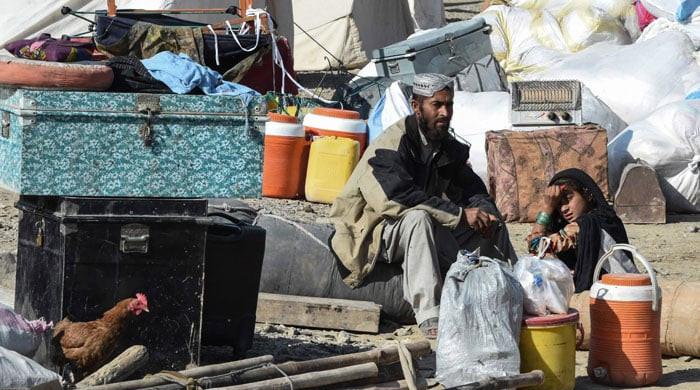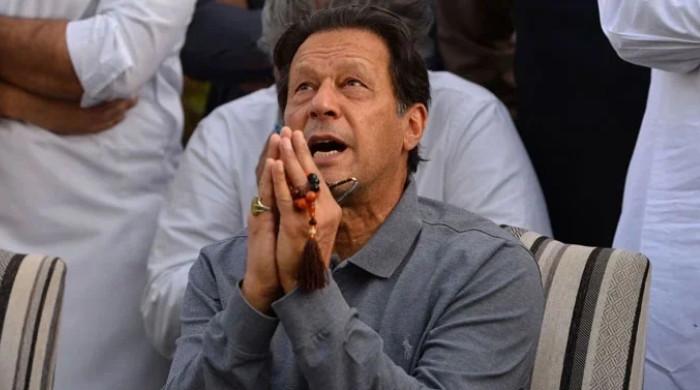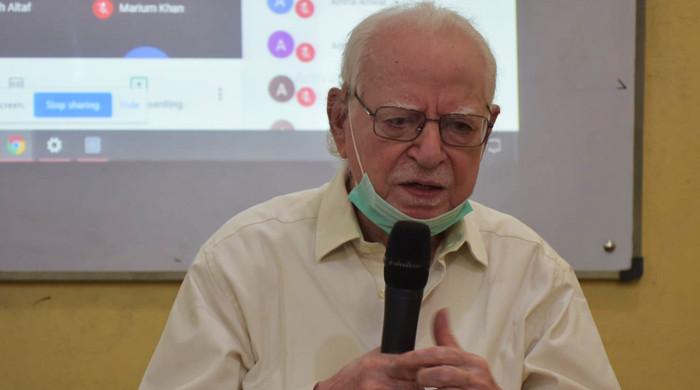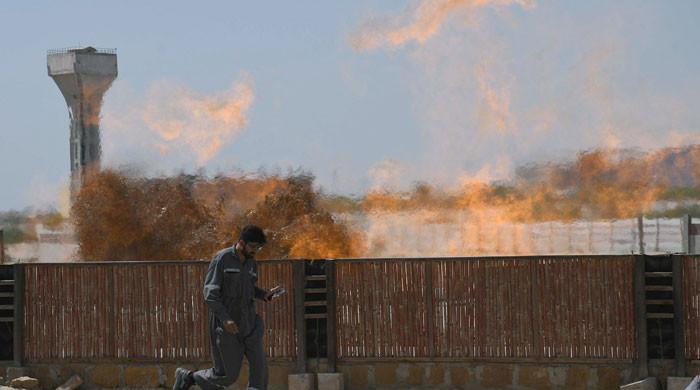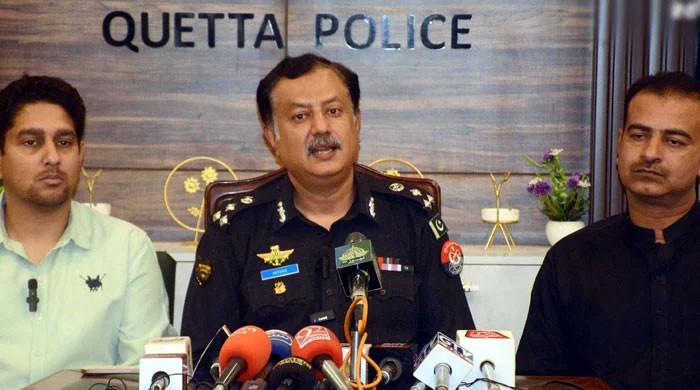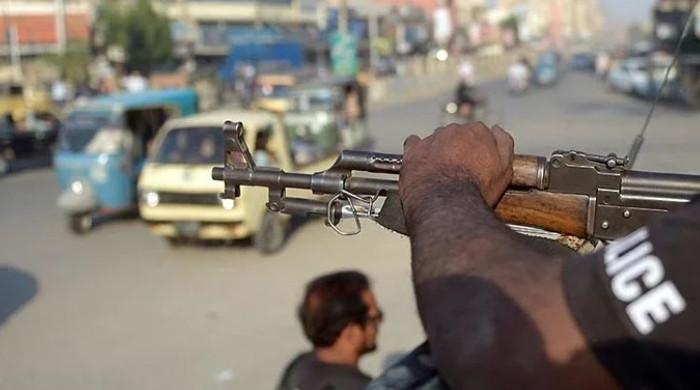'Unannounced martial law imposed in country', Imran Khan tells top court
Lamenting SC ruling, ex-PM asks, "I did not get it, what political scoring did I resort to"
June 06, 2024
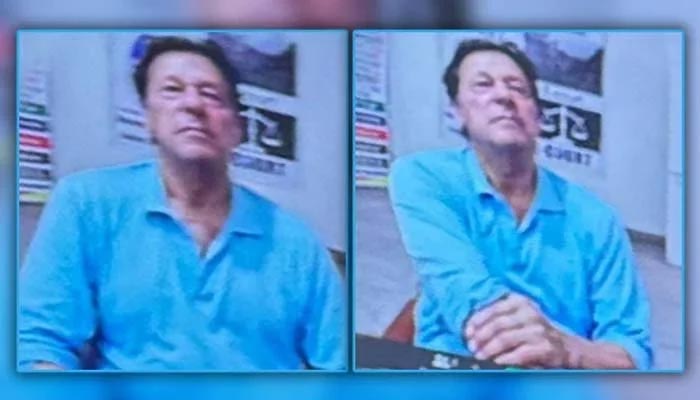
ISLAMABAD: Incarcerated Pakistan Tehreek-e-Insaf (PTI) founder Imran Khan has complained of the “victimisation” that he faced since his ouster from power in April 2022 during the hearing of the NAB amendments case hearing in the Supreme Court.
The jailed PTI founder appeared before the Supreme Court’s five-member bench via video link from Rawalpindi’s Adiala jail, where has been incarcerated since his conviction in the Toshakhana case last year.
The SC bench headed by Chief Justice Qazi Faez Isa and comprising Justice Aminuddin, Justice Jamal Khan Mandokhail, Justice Athar Minallah and Justice Hasan Azhar Rizvi heard the case.
Presenting his arguments, Khan told the bench that unannounced “martial law” had been imposed in the country and he was convicted in a matter of five days to keep him from the general elections.
He also cited an example of Delhi Chief Minister Arvind Kejriwal, saying the latter was released on bail ahead of the Indian general elections to run the campaign.
Khan also expressed dismay over the SC’s judgment rejecting Khyber Pakhtunkhwa’s government plea requesting the live streaming of the case.
“You wrote [in the judgment] that I did political point scoring during the last hearing. I did not get it, what political scoring did I resort to,” the PTI founder asked the CJP.
At this, the CJP said a judge does not owe an explanation to anyone over the verdict. “You can file a review petition,” the top judge said in response to Khan’s question.
The CJP also asked the former premier to speak only about the matter currently pending before the court.
The PTI founder lamented that he was sentenced to 14 years in the Toshakhana case, claiming that prosecution falsely estimated the value of the watch he received from a foreign dignitary as prime minister at Rs3 billion.
Lamenting political victimisation, the PTI founder said the Supreme Court should appoint a NAB chairman.
“When opposition and government fail to evolve consensus on the name of NAB chairman appointment then a ‘third umpire’ makes the decision,” he said, adding that the anti-graft body is working under the “third umpire”.
Addressing the PTI founder, Justice Minallah said: Khan sahib, there was no reason to declare the NAB amendments invalid.”
“You might not have read my note. What is left of NAB after your statement,” the judge added. He further asked Khan whether he still trusted the NAB.
“After what NAB did to me in 5 days, what credibility is left,” the PTI founder replied.
Khan said he was currently facing NAB inquiries and called for improvement in the anti-corruption body.
After Justice Minallah reminded the founder about the issue of the appointment of Chief Election Commissioner, he said restoring the amendment would help him in the NAB cases, however, the country “will become bankrupt”.
CJP Isa also barred the PTI founder from citing Islamabad High Court (IHC) verdict in the cipher cases, saying the appeal in the case might be filed in the apex court.
“Why did not you oppose the NAB amendments in parliament,” asked Justice Rizvi. , Khan cited the circumstances saying that his government was toppled via conspiracy and he did not want to respond to the “conspiratorial government” in parliament.
CJP Isa told Khan that he was talking about two different things. “On one hand you are talking about accountability and on the other you gave amnesty.”
Khan said he rolled out tax amnesty during his stint in power to mainstream the black economy.
“Solve the problems by sitting in parliament. This country needs to move forward,” the CJP remarked.




